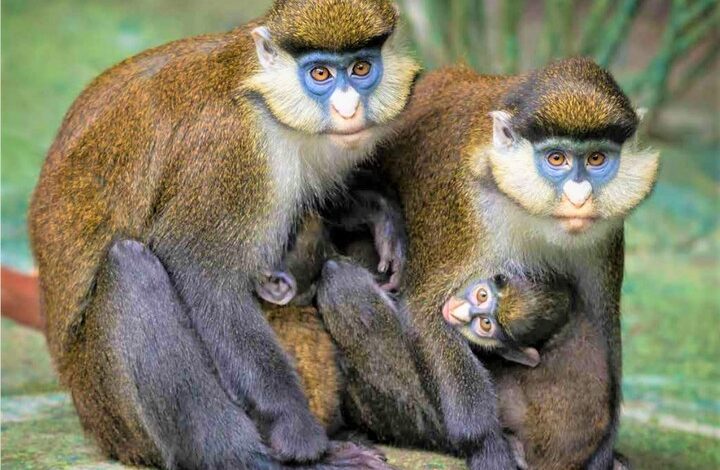Top 10 Wildlife Species Unique to Nigeria

Nigeria is a nation rich in biodiversity, boasting a variety of ecosystems that support numerous unique wildlife species. From the lush rainforests in the south to the savannahs in the north, the country is home to a remarkable array of flora and fauna, some of which are found nowhere else in the world. Here’s a look at the top ten wildlife species unique to Nigeria that highlight the country’s ecological significance.
1. Nigerian Goat (Capra aegagrus hircus)
The Nigerian Goat is a domesticated breed native to Nigeria, known for its hardiness and adaptability. These goats are raised primarily for their meat and milk and are a vital part of the livelihood for many rural communities. They have distinct physical features, including short legs and a stocky build.
2. Cross River Gorilla (Gorilla gorilla diehli)
The Cross River Gorilla is one of the most endangered primates in the world, found only in the mountainous regions of southeastern Nigeria and western Cameroon. With an estimated population of fewer than 300 individuals, these gorillas are threatened by habitat loss and poaching. Conservation efforts are crucial for their survival.
3. Nigerian-Crowned Crane (Balearica pavonina)
This striking bird is known for its impressive golden crown and elaborate courtship displays. The Nigerian-Crowned Crane is primarily found in wetlands, grasslands, and savannahs across Nigeria. Its population is threatened by habitat destruction and hunting, making conservation efforts essential.
4. African Manatee (Trichechus senegalensis)
The African Manatee inhabits the coastal waters and rivers of Nigeria. This gentle marine mammal is an herbivore, feeding on aquatic plants. With their populations declining due to hunting and habitat loss, protecting their habitats is critical for their survival.
5. Sclater’s Monkey (Miopithecus sclateri)
Sclater’s Monkey, also known as the Nigerian Monkey, is a small primate endemic to the forested regions of Nigeria. This monkey is characterized by its distinctive facial markings and long tail. Habitat loss due to logging and agriculture poses a significant threat to its population.
6. Wattled Crane (Grus carunculatus)
The Wattled Crane is a large, migratory bird found in Nigeria’s wetlands and grasslands. Recognized by its distinctive wattles and vocalizations, this crane species is vulnerable due to habitat degradation and hunting. Conservation efforts are vital for maintaining its population.
7. Giant Sengi (Macroscelides giganteus)
Also known as the Giant Elephant Shrew, the Giant Sengi is a unique small mammal found in Nigeria’s forests and savannahs. It is known for its long snout and quick movements. Despite its name, it is more closely related to aardvarks and elephants than to true shrews.
8. Patas Monkey (Erythrocebus patas)
The Patas Monkey is a ground-dwelling primate found in Nigeria’s savannahs and grasslands. Known for its long legs and incredible speed, this species is primarily herbivorous and lives in large social groups. Habitat destruction and hunting are significant threats to its population.
9. African Grey Parrot (Psittacus erithacus)
The African Grey Parrot is renowned for its intelligence and exceptional ability to mimic human speech. Found in the forests of Nigeria, this bird is highly sought after as a pet, leading to significant declines in the wild population due to trapping and habitat loss. Conservation efforts are necessary to protect its habitats and populations.
10. Bongo (Tragelaphus eurycerus)
The Bongo is a large, colorful antelope found in the dense forests of Nigeria. Known for its striking orange-brown coat and white stripes, the Bongo is elusive and primarily nocturnal. Habitat loss and hunting have led to a decline in its population, making conservation efforts crucial.
Nigeria’s unique wildlife species are not only vital to the country’s ecological balance but also contribute to its cultural heritage and tourism potential. Protecting these species requires concerted conservation efforts, public awareness, and sustainable practices to ensure that future generations can enjoy Nigeria’s rich biodiversity. By valuing and safeguarding its wildlife, Nigeria can play a crucial role in global biodiversity conservation.




